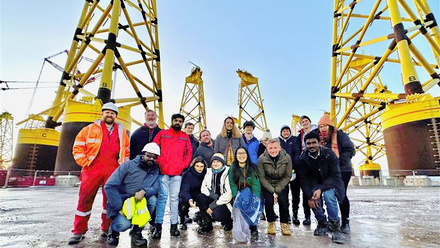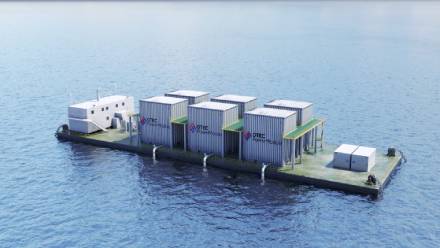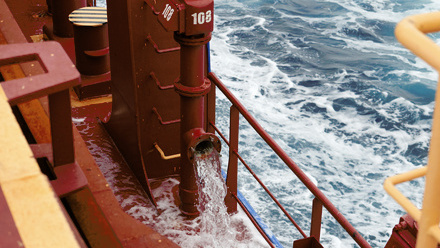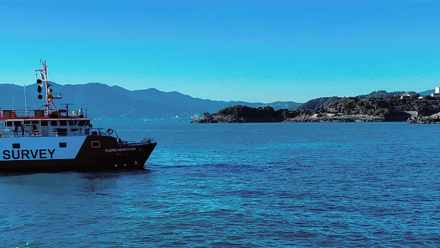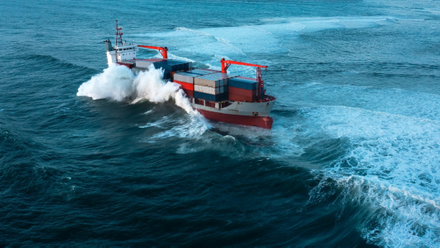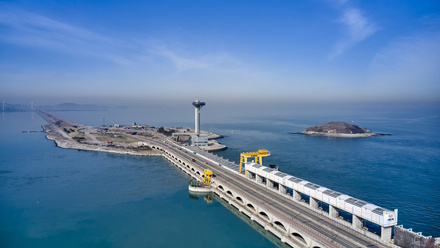British Science Week in review
The last week has seen a multitude of scientific activities taking place across the UK, inspiring thousands of people to engage with science for British Science Week (BSW). With ‘journeys’ being this year’s theme, marine issues received a great deal of attention, from plankton to whale migrations, and the movement of plastic pollution making its way to the oceans.
The importance of sustainability was highlighted throughout the week, with a variety of events focussing on marine food webs, climate and pollution which, in fitting with this theme, included the IMarEST hosting its first ever Annual Conference exploring the topic of the ‘blue economy’ during BSW.
Below we summarise the highlights of BSW, exploring some of the most notable and exciting events involving marine related activities.
IMarEST Annual Conference 2019
Friday 15th March saw the IMarEST hosting its first Annual Conference, on the theme of Shaping the Future of a Sustainable Blue Economy. This event saw the gathering of a selection of the organisation’s Special Interest Groups (SIGs). These groups of experts in particular marine sectors had the opportunity to share their expertise and ground breaking work with other marine professionals and a global audience who tuned in online to watch the livestream on IMarEST TV. Experts across the fields of Operational Oceanography, Ocean Governance, Shipping Emissions, Offshore Renewables, Ballast Water, Biofouling, Autonomy and Safety each presented their most current projects and its relevance to pressing issues in the pursuit of a sustainable blue economy of the future.
A full roundup on the IMarEST’s first Annual Conference will be made available in the Institute News section of our website later this week, along with open recordings of each lecture on our IMarEST TV YouTube channel which you can watch for free. Moreover, if you have particular interest and specialist knowledge in any of the fields which our SIGs are concerned with, you may be interested in reading more about the opportunities to get involved with our available SIGs here.
‘Rubber Jellyfish’ UK and European Premier
The week also saw the UK and European premier of the ‘Rubber Jellyfish’ documentary which follows filmmaker Carly Wilson as she explores the problem of balloons mimicking jellyfish when they reach the ocean - a huge problem for global turtle populations as they consequently eat them.
It explores the effects of helium balloons on wildlife, the environment and ultimately us, with Wilson seeking a solution to the problem throughout the film and how we can achieve it. The premier presented the opportunity to meet like-minded people and other local eco-friendly campaigns and even boasted a vegan café on site!
‘Plankton Journeys’
Dr. Hickman, Oceanography Lecturer at the University of Southampton, presented a fascinating talk on 'Plankton Journeys', where she considered the links between plankton and our climate. Throughout the talk, she also explored how physical factors play a part in affecting the distribution of these organisms that are vital to global marine food webs and play a critical role in cycling global carbon.
Living Seas Centre BSW Celebration
Living Seas is an established scheme run by The Wildlife Trusts, promoting marine citizen science. During BSW, the Living Seas Centre, Yorkshire, was open to people who wanted to learn more about marine science, gain identification skills and experiment with microscopes among other activities. The Living Seas Centre conducts activities year-round and you can find out more here. What’s more, you can contact your local Wildlife Trust or visit their website to see what other marine science volunteer projects may be available to you.
How you can get involved in marine science
You do not need to be an expert to get involved in marine science. BSW is a means of involving everyone in science, and welcomes people from all scientific or non-scientific backgrounds. Moreover, the goal is to keep people inspired by science year-round, and there are many ways in which you can keep taking part in science if you are interested.
There are global events throughout the year which you can find advertised on sites such as Science Live, as well as the IMarEST’s events page. Citizen science projects, such as BSW’s Operation Weather Rescue, are a fantastic way to get involved, hands-on, in science – even if you don’t have any past experience in science!
Various Trusts and NGOs welcome volunteers to help with their work, and sites such as Zooniverse offer a diverse array of projects which people can easily get involved with, including identification of invasive marine species, in-line with much of the work of the IMarEST’s Ballast Water Management SIG.
Looking forward – and into the deep: Nekton Mission
During BSW, our partner organisation, Nekton, live-streamed their First Descent mission, which can be found on the Nekton website. Fitting with BSW’s theme of ‘journeys’, the Nekton team have been using highly advanced submersibles to venture to the unexplored depths of the Indian Ocean.
Last year, in line with our recent Annual Conference, Nekton presented at the IMarEST’s prestige Stanley Gray lecture, which considered Nekton’s work in light of the Blue Economy. If you would like to learn more about Nekton and the IMarEST’s partnership with them, you can read more on our website.
Later this week they will be livestreaming Submarine Live 2019 the world’s first ever deep sea live feed. Submarine Live provides students interaction with the Nekton Mission's pioneering scientific expedition setting out to establish new baseline data of marine life and ocean health in the Seychelles' ocean territory.
With very little research having been undertaken beneath 30 meters, the Seychelles' vast ocean territory of 1.37 million km2 (nearly twice the size of the UK) is fresh for discovery.
By registering, primary and secondary students will be able to participate in the Ask-Me-Anything (AMA) and follow live investigations. Submarine STEM resources 7-11 and 11-14 and activities are available for teachers to introduce deep sea exploration.

